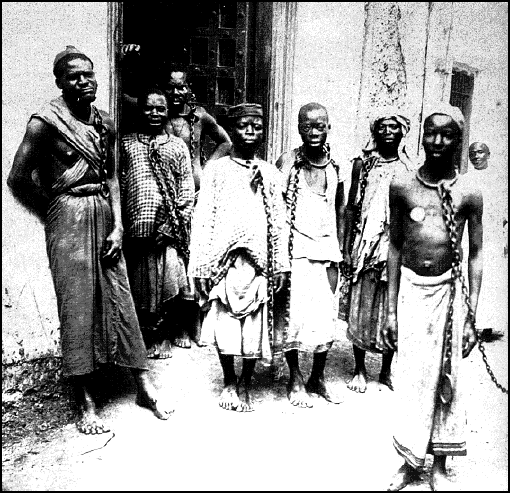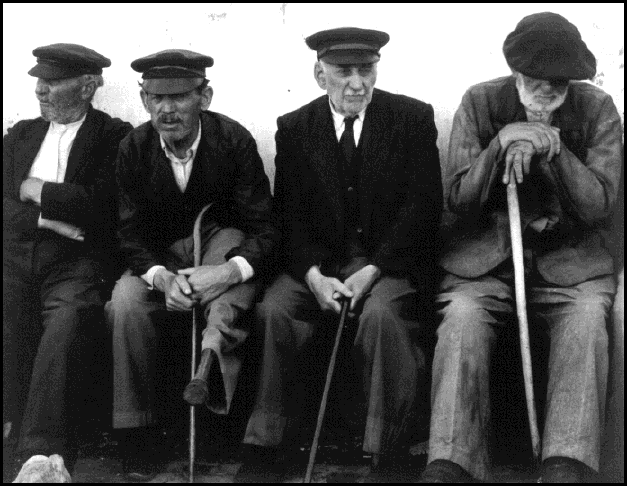All-Time Favorites from RALPH
we've reviewed 400 or more works of fiction.
There are a dozen or so that still
stick in our minds as being works of art:
truly original, lively, and
built for the ages.
An Abject Reptile
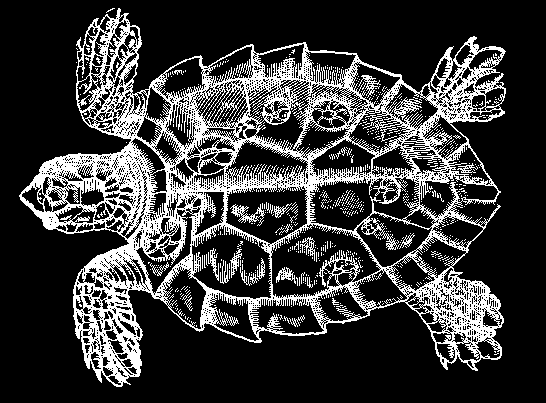
"I have seen these humans in their disarray. Far more common than any finery. Hair wrung into knots. Stockings fallen. Skirts clotted with mud and manure. Eyes, noses red from fist-rubbings, coarsening wind."Eruptions on rough hands from hop-picking. Itching tumors from harvest-bugs. Jaws tied up with the tooth-ache, the head-ache. Faces choked with drink, sweat, sleep, stupidity, confusions of the rut. Such a bulk of being to regulate. Disorder stalks them day and night. They stalk it back.
"Great soft tottering beasts," he concludes.
Books, as one of my friends says, are there to be eaten --- but it is rare that I gorge on one before breakfast. I certainly did with Timothy. My advantage was having it read to me by Josephine Bailey. She's the consummate commute companion, the best one could ask for. She speaks an elegant, impeccable English, reading to us as if she were a bit tired by life (as Timothy certainly was), a bittersweet elegance in her voice. I was puzzled to find Timothy being voiced by an older woman until Timothy reveals to us that he is really an older woman ... an older woman-with-shell, that is. And Mr. Gilbert White never figured out that his Timothy is a she.
He also can't figure out why she would want to run away from her comfortable garden. He can't comprehend that she just wants to get away from humans. And Timothy's half-amused scorn for Mr. Gilbert White comes from her scorn for the rationalist's "system:"
The naturalist begins to understand after years of study. He records the when, and where, and which, of the birds of passage and beasts of the field. Those are the very questions that system is poised to answer. But why will never be solved by system. No number of small corpses dissected, tagged, and preserved will ever begin to answer why. How the nightingale sings, pitch of the notes, melody of the song, structure of the voice box. But never fully the nightingale's why.
Go to the complete
review
Of Kids & ParentsOf all the unlikely venues for a story, this has got to be it: a tantalizing, suck-you-in, lay-you-out, haunt-your-soul moment-by-moment of a father and son walking the streets of the city, talking of the grandfather who made toys and mannequins; ladies they knew ... wanted to know ... never got to know; favorite airplanes --- not model airplanes, the real McCoy --- including the Corsair F4, one WWII favorite that I hadn't heard of --- or certainly not thought of --- for sixty-five years.Walking the streets of Prague, long after the fall of Soviet Russia, memories of friends who became members of the SS, KGB, or (worst of all, for those living in that part of the world) the much-dreaded Ustashi. A day spent on the streets, going in and out of taverns, the 71-year-old Ivan, the 44-year-old Honzo, and their thoughts, fears, delights, delusions, loves ... and their strange Czech drinks: "Magic Eye," "V-2 Rocket," "Pond Scum," "Chumbawamba," "Bamboo Shoot with a Motor" which is, gag, "Red wine and cola, half-and-half, with a large shot of Fernet, an atrocious drink..."
Then the quick switchback. Old Ivan going into detail about a love affair from forty or fifty years ago, perhaps before Honzo was born, "a woman of Ljubljana, she was a real woman that one, thin, but what a figure, just a glance at her was enough to give me a belly-slapping erection.
"I know father and son shouldn't be talking to each other like this, but who's left in the world for me to tell it to."
Go to the complete
review
An Episode in the Life
Of a Landscape Painter
Is it the symbols? There are symbols, good ones too: "the enormous grilles shut behind them with a clang to which the birds replied;" salmon "as big as sheep;" gusts of wind rearranging the "stars and mountains."
Is it the rare flash of the comic? Rugendas, face hidden in a mantilla, (since he can't see his face he isn't worried about hiding it; but light, the bright light of the Argentine highlands, hurts his eyes). Thus half-blind, mounting his horse backwards, "when he came to look for the reins of course he could not find them. The horse was headless!"
The faceless man on the headless horse, charging off (backwards) to find an Indian raid, so he can get it down on paper, always at the edge of the action, finally stumbling, late at night, into the encampment of the rebels, where Rugendas continues to draw faces as peculiar as his own,
- ...big mouths with lips like squashed sausages, Chinese eyes, figure-eight noses, locks matted with grease, bull necks ... His face expressed things he did not mean to express, but no one realized, not even Rugendas, because he could not see himself. He could only see the faces of the Indians, which to him were horrible too, but all in the same way.
review
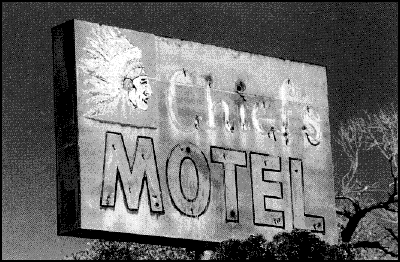
What to do about the babe in the oven? Rumor is that mother Willa Mae was buried with a diamond ring on her finger and a pearl necklace around her neck, so Billy steals Dill's car to go to LaJunta and dig up mum or rather the jewelry so she could have the money for an abortion.
Now Dill Smiles raises pigs, was Willa Mae's lover ... only it turns out that Dill is what people in Lincoln, Texas call a "bulldagger, dyke, lezzy, what-have-yous." She also scarcely ever smiles even though that's her name. Dill spends time in the men's barbershop and talks man-talk about her pigs and the weather and everyone knows the truth about her but they don't bring it up because she's taller than anyone there and is a dead shot with her pistol.
When Billy was a child, she used to be dragged all over the country with Willa Mae looking for a man and also looking for what she calls a "Hole."
- Everybody's got a Hole. Ain't nobody ever lived who don't got a Hole in them somewheres. When I say Hole you know what I'm talking about, dontcha? Soft spot, sweet spot, opening, blind spot, Itch, Gap, call it what you want but I call it a Hole.
When things get tough, Billy finds herself looking for peoples' Holes, especially when she and June Flowers Beede and Roosevelt Beede and one of her cousins take off for the Pink Flamingo Auto Court in LaJunta, New Mexico, Pop. 30, to dig up Willa Mae's body and retrieve the diamonds and pearls. What they don't know is that when lover Dill Sweet buried her, she also relieved the body of the jewelry, figuring Willa Mae wouldn't need it where she was going.
What a pleasure it is to put oneself into the hands of a writer who, for a change, knows how to spin tales and hook words together. Ms. Parks weaves it all so fine, stories of the five or so major characters and the thirty or so minor characters, all brought together so deftly that there's never a moment where one isn't either goggle-eyed at the details and the dialogue, or agog with anticipation over what's to come next. These people --- most of them supremely poor Blacks living in segregated Texas, 1963 --- are droll and dry and so very feisty.
review
He grew up on Tulln, lived, mostly, in Vienna where he attended the Academy of Fine Arts, ended up in the prison at St. Pêlten charged with contributing to the delinquency of minors, passed on to Prague where he was inducted into the army, and ended up in Mêhling prisoner-of-war camp where, "despite the cold and the filthy conditions, he was happiest, with nothing to do but fill his portfolio with drawings of dying Russians." He himself died of the 'flu in late 1918 in Vienna, tended by his loved and beloved sister Gertie...
It is a warm surprise to find someone who knows how to plot a novel, who knows the language (that is, how to write winningly and well) and finally --- but most difficult of all --- knows how to show humans and human nature --- the good, the bad, the awful; one who knows how to make the characters come to life so powerfully that you find that for the time, for instance, that you are immersed in Arrogance you are living in 1915 Austria, following this deranged (but perfectly believable) character as he seduces and intrigues and schemes --- all the while declaiming his loathing for critics, art collectors, the middle and upper class in general; interested only in what could give him satisfaction: visual beauty, natural beauty, sexual beauty (or grotesquery --- for him, the two are interchangeable) on the canvas.
review
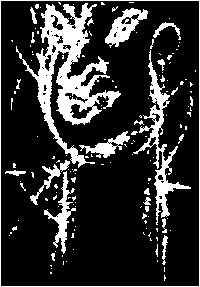
So I was put off by the first few pages of Buddha Da, thought to myself that I could never make it past page twenty. By page fifteen, however, I was figuring out most of the dialogue. By page twenty-five I was saying to hell with the dialect, this lady can write. By page fifty you'd have to use a jackhammmer to get Buddha Da out of my hands.
This strange lovely language adds another level to what is already an interesting piece of writing. All this stuff is going on: Jimmy getting enmeshed in Buddhism, driving everyone mad; Anne Marie filling her days as kids will with school and music and a tape competition for the BBC; Mum taking this Buddha stuff for as long as she can, then going out to glom onto young David who brings her body, hungry from too many months of enforced celibacy, back to life:
-
All the time we were daein it ah felt as if as was split in two, as if part of me was inside ma body, feelin, and another part of me was somewhere up on the ceilin, watchin ... And it was like ridin; the rhythm was perfect, like these guys that ride waves on surfboards, hittin just the right spot.
Those speaking the language are the main characters in the Buddha Da. Others --- teachers, doctors, lawyers --- communicate with King's English, and soon, for the reader, the King's English is not enough. Anne Donovan is probably a poet pretending to be a novelist. Leastwise, she got me caught in her poetry, so that when those teachers and doctors and lawyers start in talking English, I worry that they don't have the poetry. You try writing a story about a mother and her daughter buying blouses at the Gap and make it sound like pure verse out of Bobby Burns.
review
Maybe it's the ridiculous details: a computer mouse, he finds, when seeking something to do with his project --- "From among the dozen or so vaguely bluish folders that appeared before me in the electronic window I'd opened, I selected the file titled The Paintbrush and opened it with two more quick strokes of my finger over the mouse's clitoris, expertly teasing its little ductile zone."
It is possibly the gratuitous (but maybe not too gratuitous) introduction of tv and computer and security screens everywhere. Or working the computers at the Pompidou Library, he finds that Titian was also known as "Tiziano Vecellio" --- (that is, T.V.) Then he discovers that to access Titian, one has to type in "TIT" into the computer. Then there is the day his friend's psychoanalyst goes on vacation, so he goes into the doctor's office and sits and listens to the clients and no one knows the difference.
Our author (or his talented translator) has seeded the tale with so many quirks and puzzlements that we just don't want to leave it alone. Our neo-existential hero is not all that far from The Stranger --- but his world is less violent, thus, perhaps, even more nonsensical.
The closest I've come to this style of writing is Javier Marías' Heart So White. It is a tale, often a very funny tale, of yet another passive, somewhat dislocated man who has a slightly looney take on the world. He --- or the author --- essentially has one thing to say. That is: We've lost the passion and we've lost the innocence. What we have left, all this machinery of the 21st Century, may mean something, but then again, maybe it doesn't. So bob's your uncle.
review
USA, possibly --- but there is a touch of War and Peace. We are in the middle of great historical happenings: Rome under siege, there's a back and forth of the military --- the Americans to the south, the Germans to the north. There's the Italian resistance, governmental terrorism. There are the loss of homes and jobs and lives to bombers, the isolation of Jews, the effect of hunger on the very young. It is as if Tolstoi's great novel were focused on the effect of towering historical events on the poor and the powerless and the dispossessed --- people enmeshed in an historical progression over which they have no control.
Even in the briefest of sketches, one can visualize the characters, see them, hear them:
- The girl's name was Maddalena, but she was called Lena-Lena by Useppe. Not infrequently, early in the morning, she could be encountered on the stairs, intent on giving the steps a hasty washing with a wet rag; or else she was seen sitting in the lodge, momentarily substituting for her grandmother. Keeping still was a sacrifice for her, however, since she preferred movement; and she didn't in the least mind running up to Useppe's in the morning. She was a little girl of about fourteen, who was as a rule quite cloistered in the family; and she lived not far away, at San Saba, having arrived from the interior of Sardinia. She had a plump little figure, with short legs, also plump; and black hair, kinky and excessively long, which grew upward, compensating for her very short stature, and making her look like a country hedgehog (or porcupine). She spoke an incomprehensible language, all full of u's. which sounded foreign; still, with Useppe, she managed somehow to make herself understood. He would let her listen to his record, and in return she would sing to him, in a harsh, high voice, some Sardinian dirges, all with u. of which he understood not a word; but the moment she finished, he would say to her "again!" as he did after Ida's Calabrian songs.
review
